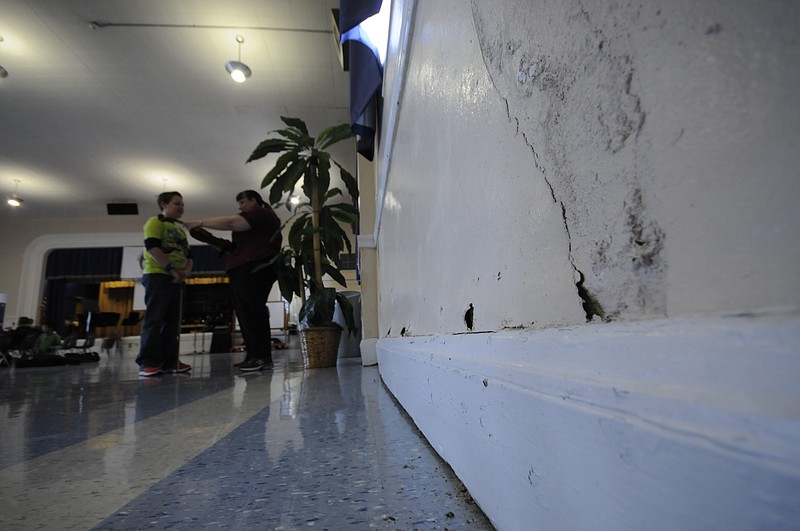Like any president's budget sent to Congress, Hamilton County Board of Education members and Hamilton County Schools administrators may declare the new public education recommendations by a local panel of business leaders dead on arrival.
They would do so, though, only at the peril of local public education.
The recommendations include consolidating the number of buildings and reducing the number of teachers, both of which may be anathema to school leaders, but the group suggests long-term savings and better student outcomes could result.
A similar group was convened and drew up recommendations for Hamilton County schools in 2009, but their ideas were ignored.
Like any president's budget, the business leaders' report contains suggestions that should be implemented but may be considered too much too soon, some that may be pondered but rejected as being politically incorrect, and some that eventually may see the light of day.
The problem is that the day of tinkering around the margins in Hamilton County Schools is over. Many students receive an excellent education in local public schools, but the plight of those who don't, the need to hire and maintain top quality teachers, the physical condition of a growing number of schools and the maintenance needs at an even greater number of schools call for wholesale changes.
To remedy some of those problems, in addition to consolidating buildings and reducing the number of teachers, the report calls for a new tax levy dedicated to school infrastructure, technology and innovation. It suggests that such a fund would help fund consolidation, which in turn would free up money for improving teacher quality and reducing the concentration of poverty in certain schools.
The report further recommends, among other things, a multi-year capital plan (an idea several school board members have floated), increased starting and maximum salaries for teachers, signing and incentive bonuses for teachers, a reformed district health benefits plan, the hiring of performance auditors, a freeing of the district from paying property assessor fees, and allowing the district to be part of the planning commission approval process.
The business leaders back some of their suggestions with data that show starting teachers in Hamilton County earn $3,500 less than starting teachers in Knoxville, $4,400 less than those in Davidson County and $10,000 less than starting teachers in Shelby County; that the county's student-teacher ratio is lower than recommended in the state's larger school systems; that the county's property tax rate dedicated to education is smaller than that in Davidson, Shelby, Sumner and Williamson counties; and that Hamilton is the only large Tennessee county without a wheel tax.
Hamilton County Mayor Jim Coppinger, who had requested an independent and neutral review of the district's financial situation last fall, is expected to present his budget for the upcoming fiscal year to the county commission next week. He told the Times Free Press Monday, as he has said on previous occasions, that he knows the school district needs more funding but doesn't know whether taxpayers believe it is deserved based on the lack of results in some areas.
Some of the district's schools have struggled for more than a decade, with test results showing little progress has been made despite their receiving millions of extra dollars in support.
Hamilton County hasn't raised taxes specifically for schools in 12 years. Coppinger hasn't said whether he plans to ask for a tax increase, but county commissioners have had the business leaders' report detailing their conclusions - that might be fodder for backing such an increase - for several weeks.
It's unfortunate the selection of a new superintendent for local public schools is expected to be made some 10 days after the budget is released. New funding in the hands of an innovative superintendent, after all, could mean a new day for Hamilton County students. New funding in the hands of a business-as-usual superintendent is akin to throwing money down a hole.
No new funding in the hands of an innovative superintendent means changes will happen but more slowly than they should. No new funding in the hands of a business-as-usual superintendent means the county mayor will ask another group of business leaders to examine the district school situation around 2024 and report back.
The then-county mayor will be correct in saying the district needs more money but equally correct in saying that taxpayers deserve to see real progress in local schools before their taxes are raised.
Meanwhile, Chattanooga 3.0 will crank up, with the Chamber of Commerce wondering why it can't fill family wage-paying local jobs with local people.
Some will call it deja vu all over again.
